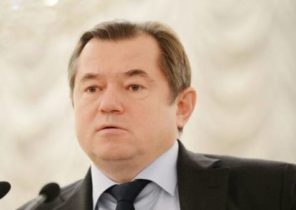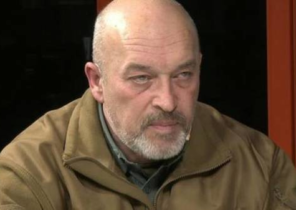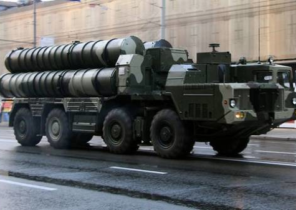After the Bolshevik revolution and the emergence of the Soviet Union, the former Russian diplomat Vladimir Rafalski Trifolii settled in Czechoslovakia. He earned a living legal translations from nine languages, graduated from the philosophical faculty of Charles University, worked in an insurance company. During world war II he served in the Bank, but then came may 11, 1945.
It’s only been two days after the entry of the red army in Prague, when Rafalski came to the Soviet soldiers. Then his wife, daughter of a prominent Russian General Dmitry sherbachev, and his two children were last seen Rafalski.
The emergence of agents of the Soviet intelligence service SMERSH, the majority of Russian and Ukrainian immigrant families remember the same. Door knocking is polite a Soviet officer, asked for help, usually something to translate or show somewhere on the road. Then inquired if he is interested in people.
Then “minute” lasted for ten years. Often, however, the family did not wait for father, husband or brother. Often family members didn’t even know, killing their loved one, where he is buried. Only in the summer of 1945 from the liberated Czech Republic, Moravia and Silesia to the Soviet Union stole at least three hundred immigrants, mostly of Czechoslovakian citizens. And in their list is becoming more and more names thanks to the Institute for studies of totalitarian regimes.
What happened to Vladimir Triplewide Rafalski, until the install failed. “We just know a week in his Prague apartment was arrested the brother of Mary Rafalski Alexander shcherbachev. He was sentenced to 25 years hard labor in a labor camp. He died in 1958 in Vorkuta, soon after liberation,” says the historian from the Institute of studies of totalitarian regimes Anna Chlebina.
About the fate of the father, the family Rafalski learned in only 60 years from the memoirs of Nicholas Synevir, which allegedly saw Rafalski “fell” from the window of the headquarters of the NKVD in Prague. No official evidence or documents about his death still could not be found.
The flight to the West, kidnapping in the East
After 1918, Czechoslovakia came almost 30 thousand persons from the former tsarist Russia. They fled from Bolshevism, and in Czechoslovakia, which since the days of the adherents were famous for their Russophilia, they were met with enthusiasm. Czechoslovakia had been supported mostly by students who had to return to Russia, when the fall of the Bolshevik government. However, this did not happen.
Immigrants settled permanently and raised families, built careers. Some became Czechoslovak citizens. There are several associations and organizations of immigrants. Started in Prague Russian and Ukrainian gymnasium. Published books and worked as research institutions. In Prague’s olšany cemetery was built as an Orthodox Church. But that all changed in 1945.
The Soviet Union has accumulated extensive experience in the arrest of immigrants. In the 30 years it imprisoned those who for some reason returned home. Therefore, before the arrival of the red army fled to the West, all those who suspected future developments and could leave. They were mostly those who lived in a mixed marriage and after 20 years as Czechoslovakia and Prague as my home. There were many.
How much in total people were taken from Czechoslovakia, started counting only after 1989. The first is a partial list includes 215 people with Czechoslovakian citizenship or permanent residence in Czechoslovakia. Recently, historians of the Institute of studies of totalitarian regimes managed to add to the list of 80 names. “On the territory of Czechoslovakia SMERSH worked until 1946, but 80% of immigrants were arrested in may and June 1945,” says historian Anna Chlebina. They were mostly older men with higher education, experts in their fields.
On the basis of days of their arrest can be seen in the map, as Soviet troops advanced. The first cases were documented in February 1945 in Poprad and in Nova ves, in April in Bratislava, on the third of may in Ostrava, the ninth of may in Brno and 11th of may in Prague.
The families of the arrested, as a rule, did not know what happened to their relative. Sometimes they remained in the dark for many years. All questions that desperate women with children deported appealed to the Soviet authorities, remained unanswered. Meanwhile, their father, brother or son was suffering in a Siberian prison camp.
SMERSH — death to spies
Russian abbreviation SMERSH means “death to spies”. Counterintelligence gradually carried out arrests throughout occupied Europe, detaining immigrants, as well as collaborators and deserters. Interested in the secret service and prisoners as well as prisoners of war. After arrest they were sent to several transit prisons. There was a investigation, presented a formal charge that served as the basis for sending a person to the territory of the USSR, where the sentence was imposed. According to the historian Anne Hlebine, mostly sentenced to ten years of work in one of the labor camps in the far East. Of these 215 people after the death of Stalin Czechoslovakia returned 70 people. However, many died during the investigation, and others — in the first week of camp in Siberia.
The Czechoslovak government, as a rule, had nothing to do and just watched as violated the rights of their citizens. Often, however, they didn’t even know about the actions of the Soviet secret service. After the loss of a breadwinner, most families were abandoned to their fate.
Russian archives remain inaccessible to researchers, but in recent years Czech historians are able to obtain the materials from Ukrainian archives. “SMERSH was part of the 1st and 2nd Ukrainian front, and therefore the materials were in the Ukrainian archives. We managed to find a number of reports about the stolen people. About 50 of the investigative documents,” adds Hlebine. The number of citizens of Czechoslovakia, removed after the war with their new homeland can be overwhelming. But the prison book in which all of them had to register, remain in the archives of the Russian Federation. And they are not available to Czech historians.
Arrested. Emigrants who disappeared after the liberation by the red army
Mykola Galagan
Before the First world war was an officer, and then served in the army and was a Ukrainian Deputy. In 1922, he settled in Prague. Member of emigre organizations, was the head of the publishing house, was twice arrested by the Gestapo. On 12 may 1945 he was arrested and sentenced to ten years. He died in the camp.
Boris Sukhoruchko
He served in the tsarist army, and then in Ukrainian. Since 1922 he lived in Prague, where he created a film company. Since 1944, fought as a partisan, translator of the red army. 19 may 1945 arrested and sentenced to ten years. Back in 1956.
Constantine Belgovsky
Organized the Czechoslovak legions, from 1920 he lived in Prague, where he headed the Russian Department of the information Agency “Tsentropress”. Arrested on 13 June 1945, died 11 September 1945 in a prison in Austria. He was buried in an unknown place in the forest.
Sergey Postnikov
Publisher from St. Petersburg, member in 1923 at the invitation of the Czechoslovak government, lived in Prague. He headed the library of the Russian historical archive. During the Second world war helped Jews and prisoners of war, sentenced to five years, back in 1960.
Vladimir Rafalski
Tsarist diplomat, in Prague, lived from 1919, an active member of the emigrant associations, the official linguist. On may 11, 1945 left home and the next day fell out of the window of the headquarters of the Soviet secret service in Prague. The family learned of his fate in the 60-ies.
Grigory Omelchenko
The middle school Director, since 1920, lived in Prague. Associate Professor of Ukrainian history and literature, then Director of the Ukrainian gymnasium in Prague. 24 may 1945, arrested in 1947 at the age of 67 was sentenced to ten years in prison, where he died.






